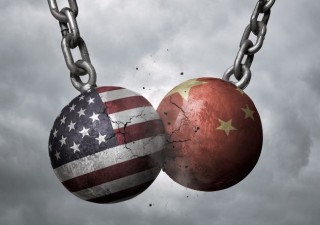Deciphering a Trump Administration
12 December 2016

The United States has elected its new president, and on January 20, 2017, that nation will inaugurate Donald J. Trump as its 45th president. With that change of command will also come major changes in trade issues and treatment of US multinational companies that will open a new era of international relations both from a business and political standpoint around the globe. Here’s a take on several key issues:
US Taxes and FDI. Regarding taxes, the Republican president-elect has been very vocal about his desire to cut US taxes for corporations operating in the United States, thereby making the US more competitive for foreign direct investment and making the nation more attractive for shifting manufacturing and jobs. A new tax scheme would slash tax rates on businesses, simplify and cut individual taxes, and let companies bring overseas profits into the country at a low tax rate, raising prospects for a sweeping deal on taxes.
Currently, multinational companies keep their foreign earnings overseas to avoid paying the 35 percent US corporate tax rate. Those foreign earnings are estimated at about US$2.6 trillion, an amount that has doubled since 2008 and is six times higher than it was in 2002. Trump proposes a one-time repatriation corporate tax reduction to 10 percent, and a permanent reduction of the US corporate tax rate to 15 percent.
The Tax Foundation, a Washingtonbased think tank, estimates that the Trump corporate tax plan would add 4.5 percent to the US gross domestic product (GDP) over the next 10 years, although it would also add more than US$2 trillion to the national deficit.
US Infrastructure Improvements. Trump also promises large increases in spending to improve US infrastructure, along with other large increases that includes additional military spending. Estimates place those increases upwards of US$500 billion. Despite ranking third on the World Economic Forum’s Global Competitiveness Index, the United States currently ranks 11th on infrastructure. In 2013, the American Society of Civil Engineers estimated that the United States needed to invest US$3.6 trillion by 2020 to vastly improve its roads, bridges, airports, etc.
The Tax Foundation maintains that at the same time, Trump’s tax plan that would reduce federal revenues by about US$6 trillion over the next decade, would significantly increase the US federal deficit by a tune of US$5.3 trillion over the next decade. The deficit is already projected to increase significantly under current law.
Trade Deals. Regarding trade agreements, it’s already known that Republican leaders in the US Congress have closed the door to ratifying the Trans-Pacific Partnership (TPP), despite many political pundits and international trade experts in the United States warning that the implications of a failed TPP could have profound negative implications for US standing in Asia and for its allies. President Barack Obama has held steadfast to his commitment to the TPP and pivot US foreign policy toward Asia. The TPP was the embodiment of Obama’s economic efforts and was intended to serve as a hedge to China’s growing economic and military influence.
While the Washington Post has reported that Obama plans to continue to talk about TPP’s economic and strategic benefits at the annual meeting of the Asia-Pacific Economic Cooperation forum in Peru, Chinese officials are expected to use the forum to promote their own Asian trade deal, which does not include the United States.
Meanwhile, Trump promises to label China a “currency manipulator” and charges he will do so immediately upon taking office. What will result, political pundits say, is limitations on Chinese foreign direct investment in the United States and/or tariffs and trade barriers against China.
The Alliance for American Manufacturing (AAM) points out that, while China’s currency is “certainly manipulated, it probably is not as undervalued as it was two or three years ago.”
Trump has also made it very clear that he plans to renegotiate or eliminate the North American Free Trade Agreement (NAFTA). He calls NAFTA the worst trade agreement in American history. Yet, US companies have developed and integrated overtly-efficient supply chains across the Canadian and Mexican borders, resulting in record high US manufacturing output.
Meanwhile, Trump suggests that the US might need to pull out of the World Trade Organization and ought to selectively tax companies that move manufacturing plants out of the United States.
Thousands of US companies are tied in some way to global trade and nearshore outsourcing as a result of trade deals such as NAFTA. Therefore, it’s safe to assume that despite the coming of a Republican president and Republican-run US Congress, the United States will be focused on long-fought debates concerning multiple aspects of international trade agreements and relations.






